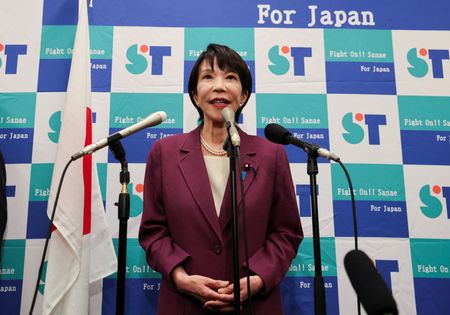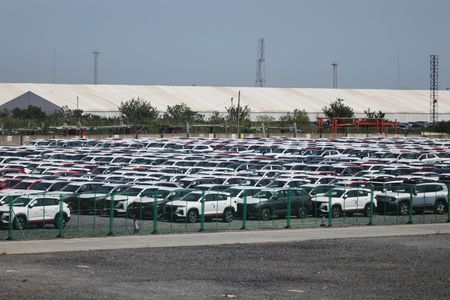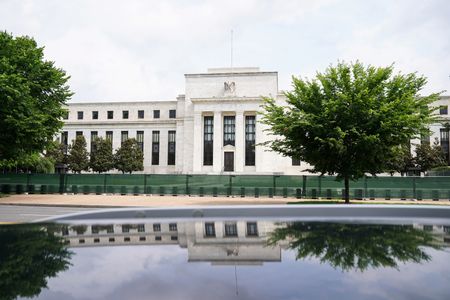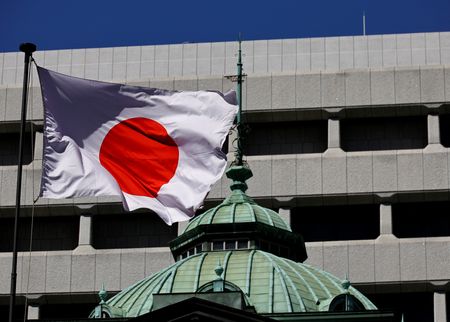By Leika Kihara and Yoshifumi Takemoto
TOKYO (Reuters) – Japan’s Sanae Takaichi launched a bid on Friday to become the first woman prime minister, pledging state spending and targeted tax relief as part of a master plan for growth that aims to double the economy within 10 years.
She and Agriculture Minister Shinjiro Koizumi are seen as frontrunners in the race to lead the Liberal Democratic Party (LDP) after Prime Minister Shigeru Ishiba said he would step down following a bruising upper house election defeat in July.
“I have never denied the need for fiscal consolidation, which of course is important,” Takaichi, who hails from the right flank of the LDP, said at the launch event.
“But the important thing is growth. I will make Japan once again a vigorous land of the rising sun.”
She pledged funding for government-led initiatives in areas such as artificial intelligence, semiconductors and battery technology.
In addition, she promised tax credits to bolster take-home pay, deductions for household services and corporate breaks for firms that provide in-house childcare.
Takaichi pitches herself as a candidate of change while also defending traditional values, and her plan represents a sharp turn away from Japan’s customary caution over deficits and a gamble that could strain bond markets.
“There will be a lot of resistance even from her own party over what they would consider fiscal irresponsibility,” said Jeffrey Hall, a lecturer at Kanda University of International Studies focused on political and social issues in Japan.
“It could have immediate impacts on Japan’s economy if she tries it. So it is a risky thing.”
In a speech on topics ranging from nuclear fusion to women’s health and farming, Takaichi also promised to restart nuclear plants and set up a national intelligence agency.
She promised to establish a new panel to screen foreign investment in sensitive industries, and called for a review of rules on land purchases by foreigners.
Takaichi, who has served as economic security and interior minister, said she wanted to strengthen Japan’s military, but declined to say what share of GDP she wanted spent on defence.
She also declined to say if she would continue visiting the contentious Yasukuni war shrine in Tokyo if she won the leadership contest and was confirmed as prime minister by parliament.
No Japanese incumbent prime minister has visited the shrine for almost two decades to avoid upsetting China, South Korea and other Asian neighbours that view it as a symbol of Japan’s wartime aggression.
If chosen as prime minister, Takaichi said she would travel abroad at least once a month to raise Japan’s profile.
(Reporting by Leika Kihara, Yoshifumi Takehiko, Makiko Yamazaki and John Geddie; writing by Tim Kelly; Editing by Sonali Paul and Clarence Fernandez)









